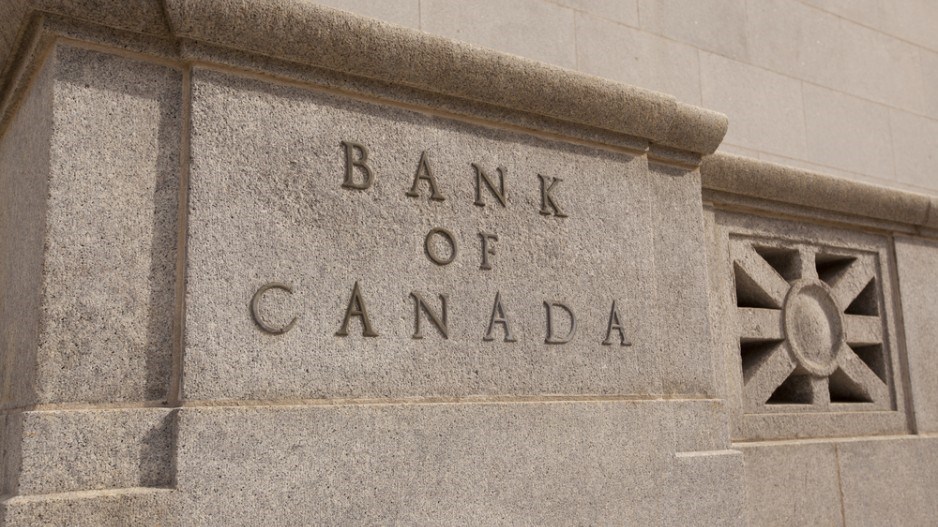As expected by analysts, the Bank of Canada has once again cut the overnight rate by 25 basis points.
The rate is now 0.50%, down from 0.75% where it had been since January when it was cut from 1%.
The central bank has also downgraded its forecasts for 2015 gross domestic product (GDP) growth in Canada since its last monetary policy report in April, from 1.9% to 1.1%.
GDP is now forecast to shrink 0.5% in 2015’s second quarter, the Bank said, after contracting 0.6% in Q1.
“The GDP call is a bit more important than usual, with recession chatter running rampant – and the Bank is now looking for Q2 GDP to drop 0.5% after the 0.6% dip in Q1, although, notably, the Bank did not use the R word,” said BMO’s Douglas Porter in a note to investors.
The Bank said one of the major drivers behind the cut was a decreased long-term outlook for global oil prices, which has seen Canadian oil producers cut their business plans.
“The Bank’s first cut in January was billed as an ‘insurance’ move against the possible effects of the oil price shock and this [July 15] move is in response to the very real effects of that shock,” Porter said.
China’s economy was also cited as a reason for the rate slash, with the Bank saying that country is going through transitions to slower growth, hurting Canadian exports.
Other exports – those from non-resource sectors – have also taken a hit in recent months.
“While this is partly due to the fist-quarter setback in the U.S. economy, it’s still a puzzle that merits further study,” Bank of Canada Governor Stephen Poloz said in his opening statement to the July 15 Monetary Policy Report.
Ben Homsy, fixed-income analyst at Leith Wheeler Investment Counsel, told Business in Vancouver that the Bank’s decision to lower the overnight rate to 0.5% was a precautionary move at a nationwide level in reaction to lower oil prices – but the effects of these low prices in British Columbia have been “relatively muted so far” as our economy in this province hasn’t been doing that badly.
“The risks from the cuts we are seeing from the Bank of Canada so far this year is that, however necessary [for the country as a whole], it does fuel financial instability risks in Canada,” Homsy, said, explaining he is referring to the housing market and indebtedness.”
Many economists feel the rate cut could give Vancouver’s already overheated real estate market an unwelcome shot in the arm, but Homsy said this doesn’t mean a housing crash or a major credit event are imminent, “but it is part of our thinking when we think about possible scenarios,” he said.
Read: Vancouver's housing market doesn't need another rate cut: economist
“Lower interest rates, to some extent, in places like B.C. and in Vancouver in particular where you have a robust housing market and you don’t have the same kind of contraction in incomes that we’ve seen in the oil prod provinces, the nationwide cut does have the effect of further inducing people to take out additional credit.”
Thomas Davidoff, professor of economics at the University of British Columbia’s Sauder School of Business, said the timing for a rate cut is not good as we don’t need stimulus to Vancouver’s housing market.
The spring real estate season saw a seller’s market emerge in Metro Vancouver, along with multiple offers and bidding wars in certain neighbourhoods. Metro Vancouver prices increased 9.4% in May, the biggest increase in Canada. The national average price increase was 3.1%.
In a heated market like Vancouver’s, continued low interest rates make it hard to determine how much properties are truly worth, Davidoff said. That’s causing anxiety and uncertainty among homeowners.
“Roughly speaking, the dividend you get from owning a house should be something like the interest rate times the value of the house,” Davidoff said.
“But when interest rates are low you can tolerate a really low rental dividend if you have aggressive beliefs about where house prices are going.”
In a report released July 14, Royal LePage warned a rate cut could lead to a sharp correction for Canadian real estate markets. The real estate company is strongly warning against a further rate cut.
Davidoff called that an “aggressive prediction.”
It’s clear the January rate cut did not provide the hoped-for economic stimulus to the Canadian economy, said Helmut Pastrick, chief economist for Central 1 Credit Union. But he does not believe the country is headed into a recession, as some economists have predicted.
“Much of the weakness we’ve seen in Canada is related to the oil and gas sector, particularly new investment spending is down … what we’re really seeing is more of an industry recession,” Pastrick said.
Canada’s economy has also been weighed down by slowing growth in China and signs of uneven growth in the United States.
The Canadian dollar plunged in reaction to this morning’s announcement, losing more than a full cent. As of press time, the loonie was trading at 77.32 cents U.S.
@EmmaHampelBIV
@jenstden




